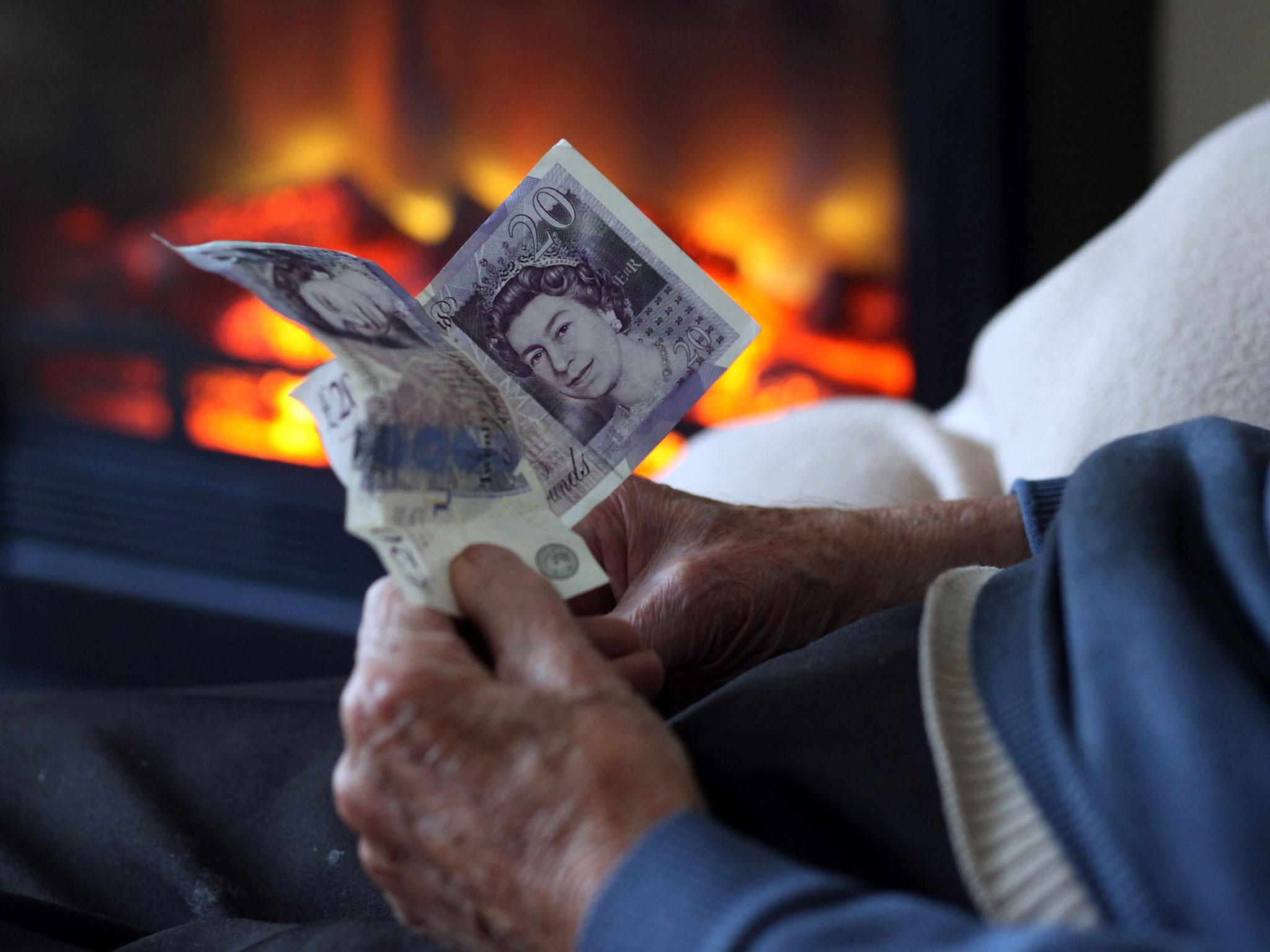Fuel poverty crisis: 3,000 Britons dying each year because they can't heat their homes, study shows
Campaigners call for action to end 'entirely preventable' tragedy that kills as many people as prostate cancer or breast cancer

More than 3,000 people are “needlessly” dying each year in the UK because they cannot afford to properly heat their homes, new research has revealed.
The UK has the second-worst rate of excess winter deaths in Europe, a study by National Energy Action and climate-change charity E3G found.
The organisations called for urgent action to end to the devastating but “entirely preventable” tragedy that they say amounts to a “cold homes public health crisis”.
The death toll looks set to rise next week as the UK braces for an imminent “polar vortex” predicted to bring harsh frost, snow showers and freezing temperatures.
A total of 168,000 excess winter deaths have been recorded in the UK over the latest five-year period. Of 30 countries studied, only Ireland has a higher proportion of people dying due to cold weather.
Almost 17,000 of those people are estimated to have died as a direct result of fuel poverty and a further 36,000 deaths are attributable to conditions relating to living in a cold home, the research found. The number dying through cold each year is similar to the amount who die from prostate or breast cancer.
The research was published to coincide with Fuel Poverty Awareness Day on Friday which aims to highlight the problems faced by those struggling to keep warm in their homes.
It comes just 24 hours after Centrica, which owns British Gas, announced plans to cut 4,000 jobs after a “weak” year in which it made £1.25bn profit. The company’s chief executive, Ian Conn, said the Government’s energy price cap - designed to prevent loyal and vulnerable customers being ripped off - was partly to blame for the layoffs.
Pedro Guertler, of E3G, who co-authored the research, said the winter death figures were not only a tragedy but a “national embarrassment”.
“This epidemic is entirely preventable and E3G and NEA are calling on the UK Government to reinstate public capital investment in home energy efficiency to fix the cold homes crisis,” he said.
“As well as ending needless suffering and premature deaths, it would also address a wide range of national infrastructure priorities.”
The impact of fuel poverty and cold homes is far wider than just the number of fatalities, the researchers said.
GP surgeries and A&E departments - already at breaking point - are placed under unnecessary additional strain. Infants living in cold conditions have a 30 per cent greater risk of being admitted to hospital or primary care facilities, and are almost three times more likely to suffer from coughing, wheezing or respiratory illness.
“In later life, the impact of a cold home often compounds poor physical health and loneliness,” the report states.
Living in cold conditions also increases the risk of health problems including cardiovascular and respiratory diseases, as well as falls and injuries. A 2012 study by Age UK calculated that cold homes cost the NHS £1.36bn per year.
“Beyond the terrible scale of cold-related winter deaths, people experiencing fuel poverty can also struggle with poor mental health and this can sadly lead to total social isolation and even suicide,” said Peter Smith, director of policy and research at NEA and co-author of the report .
“This preventable tragedy must end,” he said.
“The UK Government must support the strong case for the re-introduction of adequate public capital investment - a necessity if we are to make the UK’s homes warmer and safe for human habitation.”
The report highlights a number of additional benefits that would result from preventing fuel poverty, including helping the UK meet its carbon-reduction targets, improving air quality, reducing the UK’s reliance on foreign gas imports, creating a healthier workforce, and supporting the energy-efficiency industry.
The authors called on the Department for Business, Energy & Industrial Strategy to commit to stronger regulations on energy efficiency including a commitment to ensure all low-income households are certified as EPC level C by 2030.
To achieve this, it recommends funding a coordinated programme of local schemes to help people implement energy efficiency improvements as well as a nationwide “safety-net” grant for those in particular need.
The report also said the Chancellor, Philip Hammond, must commit to trialling systematic infrastructure investment in the next Budget.
Action on cold homes and fuel poverty has not kept pace with need in recent years and progress has stalled with the number of homes being insulated each year falling 90 per cent since 2012.
“There is now a large gap between action to deliver warm and efficient homes, and the ambition to do so, which needs to be urgently filled,” the report said.
The report looked at fatality numbers between December and March compared with the four months before and after, across 30 countries over five winters. Those figures put the UK sixth-worst in Europe but this skews the results to make the number of excess winter deaths in relatively warm countries with short winters appear more dramatic while under-reporting cold-related deaths in cooler countries. After adjusting for this, the authors found that the UK is the second-worst country for excess winter deaths.
Subscribe to Independent Premium to bookmark this article
Want to bookmark your favourite articles and stories to read or reference later? Start your Independent Premium subscription today.

Join our commenting forum
Join thought-provoking conversations, follow other Independent readers and see their replies